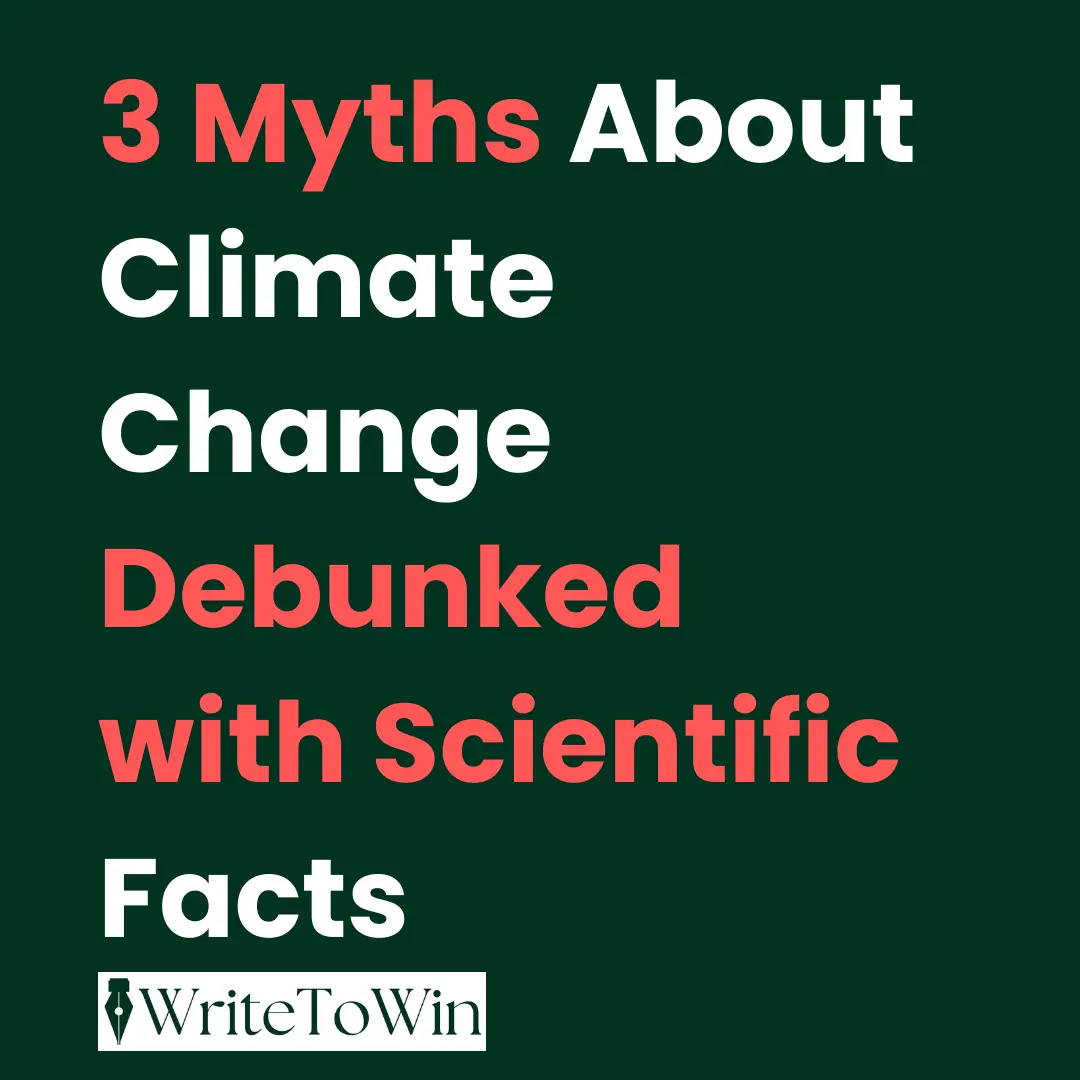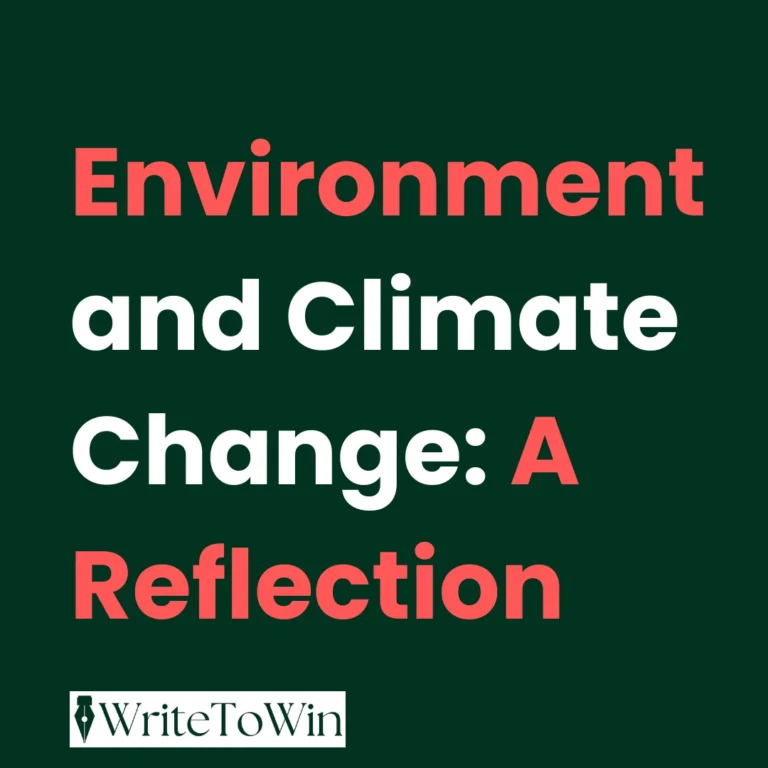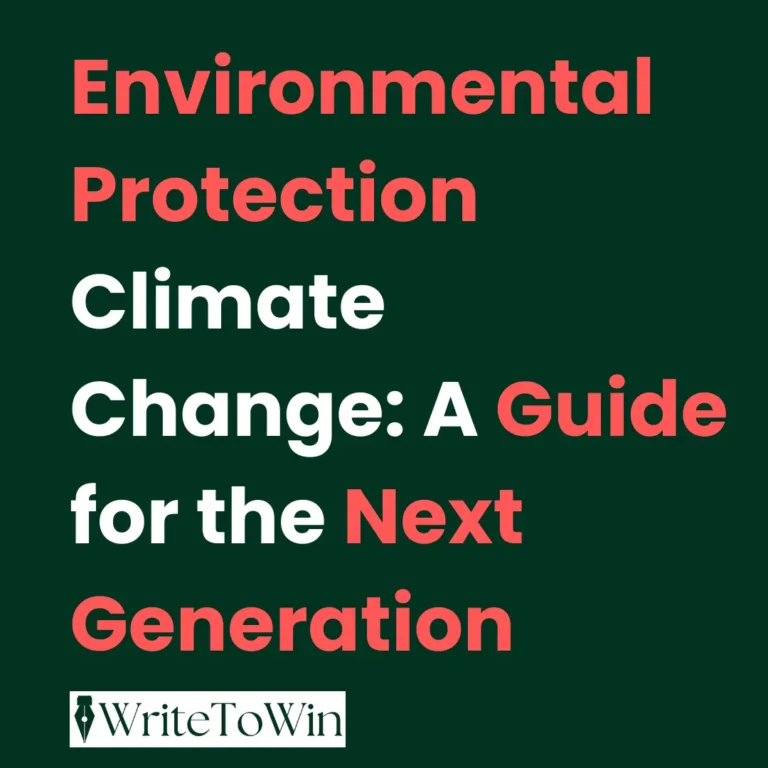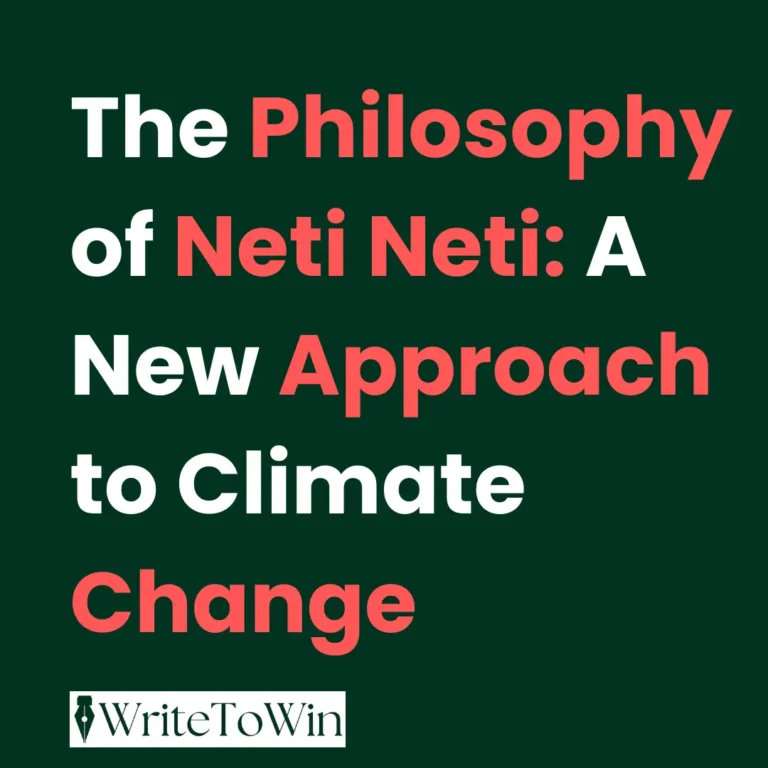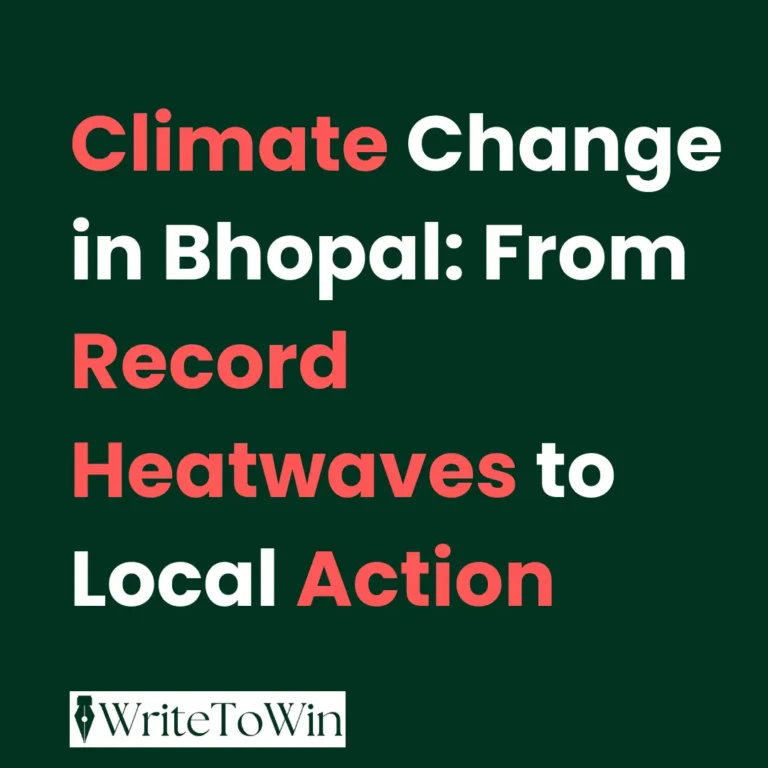In today’s hyper-connected world, we are flooded with information, and when it comes to a topic as vast as climate change, it can be difficult to separate fact from fiction. Misinformation can cloud our understanding, create doubt, and ultimately, delay the urgent action that is needed.
The truth is that the science of climate change is clearer and more certain than ever. To have productive conversations and make informed decisions, we need to be armed with the facts. Let’s cut through the noise and debunk three of the most persistent and damaging myths about climate change, using evidence from leading scientific institutions like NASA and the IPCC.
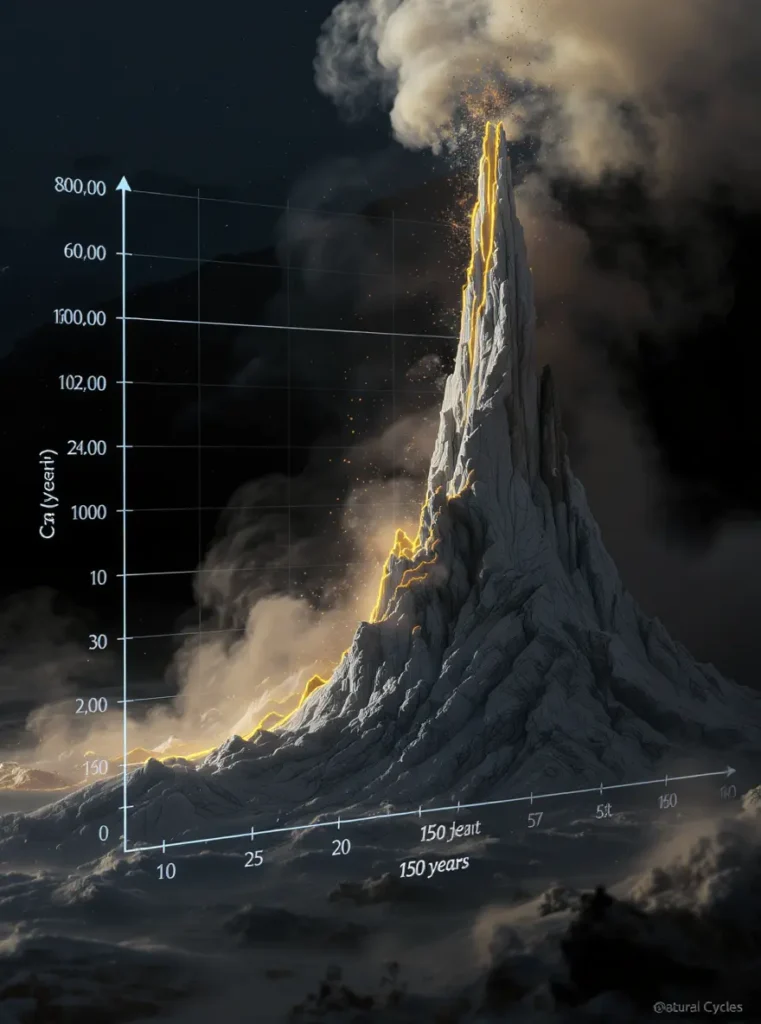
Myth #1: "The Climate Has Always Changed. It's Just a Natural Cycle."
This is one of the most common arguments you’ll hear. It’s designed to make human-caused climate change seem normal and not a cause for concern.
The Grain of Truth: It’s true that the Earth’s climate has changed dramatically over its 4.5-billion-year history. There have been ice ages and warm periods driven by natural factors like wobbles in the Earth’s orbit (Milankovitch cycles) and volcanic eruptions.
The Debunking: The Unprecedented Speed and the “Smoking Gun”
The flaw in this argument lies in two key areas: speed and cause.
- Unprecedented Speed: Natural climate shifts happen over vast timescales of thousands or millions of years. The warming we are experiencing now is happening at a rate roughly 10 times faster than the average warming period after an ice age. Life on Earth had millennia to adapt to past changes; today, ecosystems (and human societies) are being forced to adapt in just a few decades, an impossible task.
- The Smoking Gun (CO2): For the last 800,000 years, we can see from ice core data that atmospheric carbon dioxide (CO2) levels naturally fluctuated but never rose above 300 parts per million (ppm). Since the Industrial Revolution, when humans started burning fossil fuels on a massive scale, CO2 levels have skyrocketed. As of 2025, they are over 420 ppm and climbing. This sharp spike in CO2 perfectly correlates with the sharp spike in global temperatures. It is the undeniable fingerprint of human activity. Over 99% of climate scientists agree that this recent, rapid warming is caused by us.
Myth #2: "It's Too Expensive to Fix Climate Change. It Will Ruin Our Economy."
This myth frames climate action as a choice between a healthy environment and a healthy economy. This is a false and dangerous dichotomy.
The Grain of Truth: Transitioning our entire energy and transport infrastructure does require significant upfront investment.
The Debunking: The Staggering Cost of Inaction is Far Greater
The real question isn’t “what is the cost of acting?” but “what is the cost of not acting?”
- The Cost of Inaction: The economic damage from unchecked climate change is astronomical. We are already seeing the costs: more intense storms destroying homes and infrastructure, sea-level rise threatening coastal cities, and unpredictable weather patterns devastating agricultural yields. Add to this the healthcare costs from severe heatwaves and air pollution, and it’s clear that inaction is the most expensive path.
- A Massive Economic Opportunity: The global transition to a green economy is the biggest economic opportunity of the 21st century. Investing in renewables creates millions of high-quality jobs in manufacturing, installation, and research—all booming sectors.
- Renewables Are Now Cheaper: The argument that clean energy is expensive is simply outdated. Over the past decade, the cost of solar power has plummeted by nearly 90%, making it the cheapest source of new electricity in much of the world. Investing in renewables isn’t a burden; it’s a smart, profitable, long-term economic strategy.
Myth #3: "One Country's Actions Don't Matter."
This myth often comes with a follow-up: “Other countries are the real problem, so why should we act?” This argument encourages paralysis by pointing fingers.
The Grain of Truth: On a historical, per-person basis, many developing nations’ emissions have been significantly lower than those of developed Western nations. And yes, some countries are larger absolute emitters of CO2 than others.
The Debunking: Every Nation is Both Vulnerable and a Crucial Part of the Solution
- Our Impact is Huge: While per-capita emissions may be lower in some developing nations, many are becoming major absolute emitters of greenhouse gases as their economies and populations grow. The path chosen to meet that rising energy demand will have a monumental impact on the entire planet.
- Our Vulnerability is Extreme: Climate change does not respect borders. Many nations are extremely climate-vulnerable. From melting glaciers threatening water supplies to coastal flooding and brutal heatwaves, it is in every nation’s profound self-interest to lead the charge on climate action.
- An Opportunity for Global Leadership: By rapidly scaling up renewable energy, any nation can become a global leader. Developing nations, in particular, can demonstrate how to build a prosperous, sustainable economy. Waiting for others to act first is a losing game where the most vulnerable suffer the most.
Conclusion: From Myth to Action
Misinformation is a barrier to progress. By understanding the facts behind these common myths, we can have more honest, productive conversations. We can challenge the narratives of delay and inaction and focus on the incredible opportunities that a clean energy transition offers. The science is clear, the economic case is strong, and the moral imperative is undeniable. The time for myths is over; the time for action is now.

Saket Sambhav is the founder of WriteToWin, India’s premier environmental writing competition for school students. A legal professional and DBA candidate in sustainability, he launched WriteToWin to shift generational mindsets – empowering students to make conscious choices and protect the planet. He also mentors young eco-entrepreneurs, nurturing the next wave of climate leaders.

